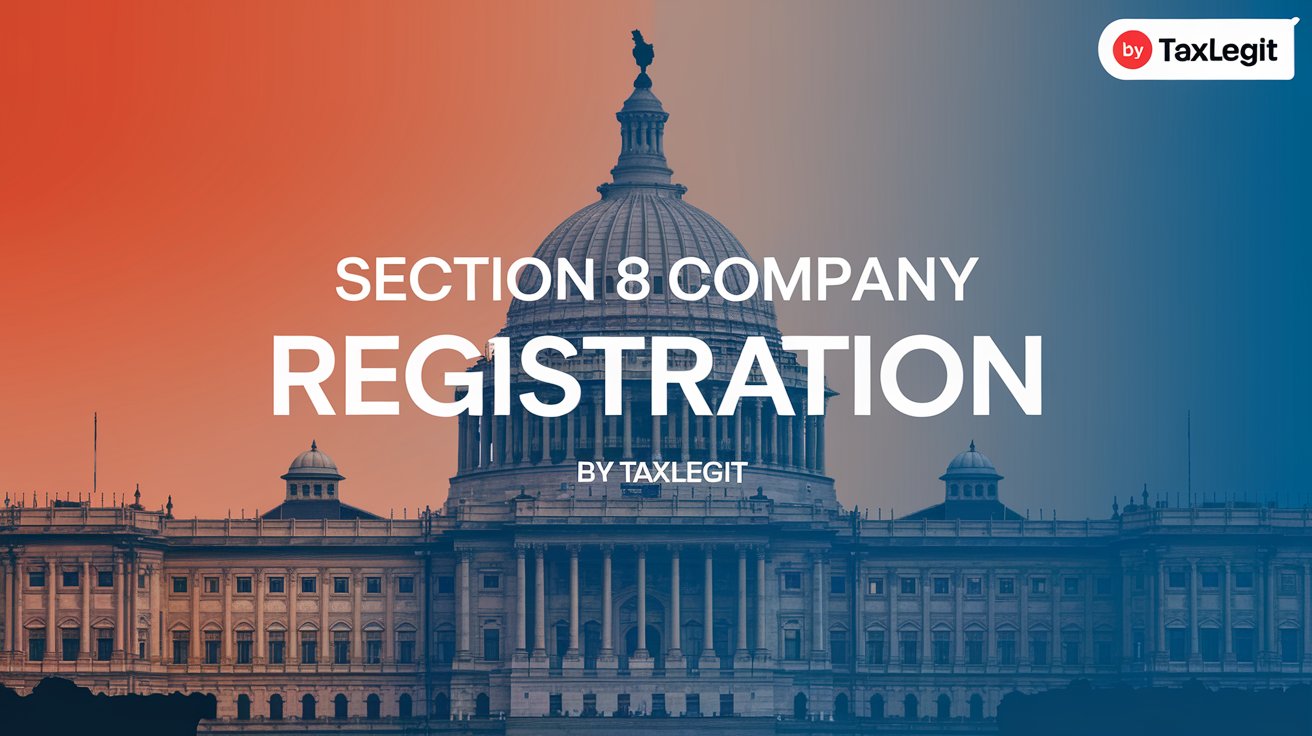Introduction
Are you ready to make a difference? Starting a Section 8 company can be your path to empowering communities and fostering social change. I’m Deeksha Khurana from Taxlegit, your go-to consultant for Section 8 company registration. Let’s dive into the essentials you need to know!
What is a Section 8 Company?
A Section 8 company is a non-profit organization in India. It aims to promote charitable causes, education, or social welfare. Unlike traditional companies, it does not distribute profits to its members. Instead, all profits go back into the organization to further its objectives.
Do you want to visit Haridwar? travel agents in Haridwar is the right place to plan your tour. You can book your tour from here.
Why Choose Section 8 Company Registration?
Registering as a section 8 company registration comes with several benefits:
- Legal Recognition: It gives your organization a formal identity.
- Tax Benefits: Section 8 companies can enjoy tax exemptions.
- Credibility: It enhances trust among donors and stakeholders.
Steps to Register a Section 8 Company
Starting your journey toward Section 8 registration involves a few clear steps. Follow this guide for a smooth process.
Do you want to visit char dham? char dham tour operator is the right place to plan you Char Dham tour. You can book you tour from here.
Step 1: Choose Your Company Name
Pick a unique name that reflects your mission. Ensure it aligns with the objectives of your Section 8 company. The name should not resemble any existing companies.
Step 2: Draft Your Objectives
Clearly outline your company’s objectives. Your mission should focus on promoting education, social welfare, or any charitable cause. Be specific and detailed.
Do you want to visit Indiar? tour operator in India is the right place to plan your tour. You can book your tour from here.
Step 3: Gather Required Documents
You’ll need several documents for registration:
- Identity Proof: PAN card, Aadhar card, or passport of directors.
- Address Proof: Utility bills, rental agreements, etc.
- MoA and AoA: Memorandum of Association and Articles of Association outlining your company’s rules.
Step 4: Apply for Digital Signature
All directors must obtain a Digital Signature Certificate (DSC). It is mandatory for submitting forms online. Choose a certifying authority for a quick process.
Step 5: Obtain Director Identification Number (DIN)
Each director must apply for a Director Identification Number (DIN). This unique number is essential for all directors. You can apply for it through the Ministry of Corporate Affairs (MCA) website.
Step 6: Fill Out the Form
Complete the SPICe+ form (Simplified Proforma for Incorporating Company Electronically). This form includes details about your company and its directors. Ensure accuracy to avoid delays.
Step 7: Submit Your Application
Once you fill out the form, submit it along with all required documents. Pay the registration fee online. The fees may vary depending on your company’s authorized capital.
Step 8: Receive Certificate of Incorporation
After a thorough review, the Registrar of Companies will issue a Certificate of Incorporation. This certificate confirms your Section 8 company is now registered.
Post-Registration Compliance
After registration, ensure compliance with legal requirements:
- Annual Compliance: File annual returns and financial statements.
- Tax Returns: Regularly file tax returns to maintain your non-profit status.
- Audit Requirements: Conduct audits as per the regulations.
Section 8 vs. Other Business Structures
When considering Section 8 company registration, you might wonder how it compares to other structures. Here’s a brief overview:
Sole Proprietorship 101: How to Register Your Business Simply
A sole proprietorship registration is the simplest form of business. It requires minimal registration. However, it does not provide limited liability protection.
Sole Proprietorship Registration
For those looking to register a sole proprietorship, the process involves:
- Choosing a Business Name: Ensure it is unique and resonates with your services.
- Registering with Local Authorities: Depending on your location, you may need to obtain a trade license.
- Opening a Business Bank Account: Use your business name for better financial management.
LLP Registration
A Limited Liability Partnership Registration (LLP) combines the benefits of a partnership and a company. It provides limited liability protection to its partners. The registration process is more complex than a sole proprietorship but offers greater legal protection.
Why Consult a Professional?
Navigating through the registration process can be challenging. Consulting a professional like me at Taxlegit simplifies the journey. Here’s how I can help:
- Expert Guidance: I provide clarity on legal requirements.
- Document Preparation: I assist in drafting necessary documents like MoA and AoA.
- Compliance Management: I help you stay compliant with all regulations.
Final Thoughts
Empowering change through a Section 8 company is an admirable goal. With the right guidance, you can turn your vision into reality. Remember, the journey may seem daunting, but you don’t have to walk it alone.
For personalized assistance and expert advice, reach out to me at Taxlegit. Together, we can make a difference!
